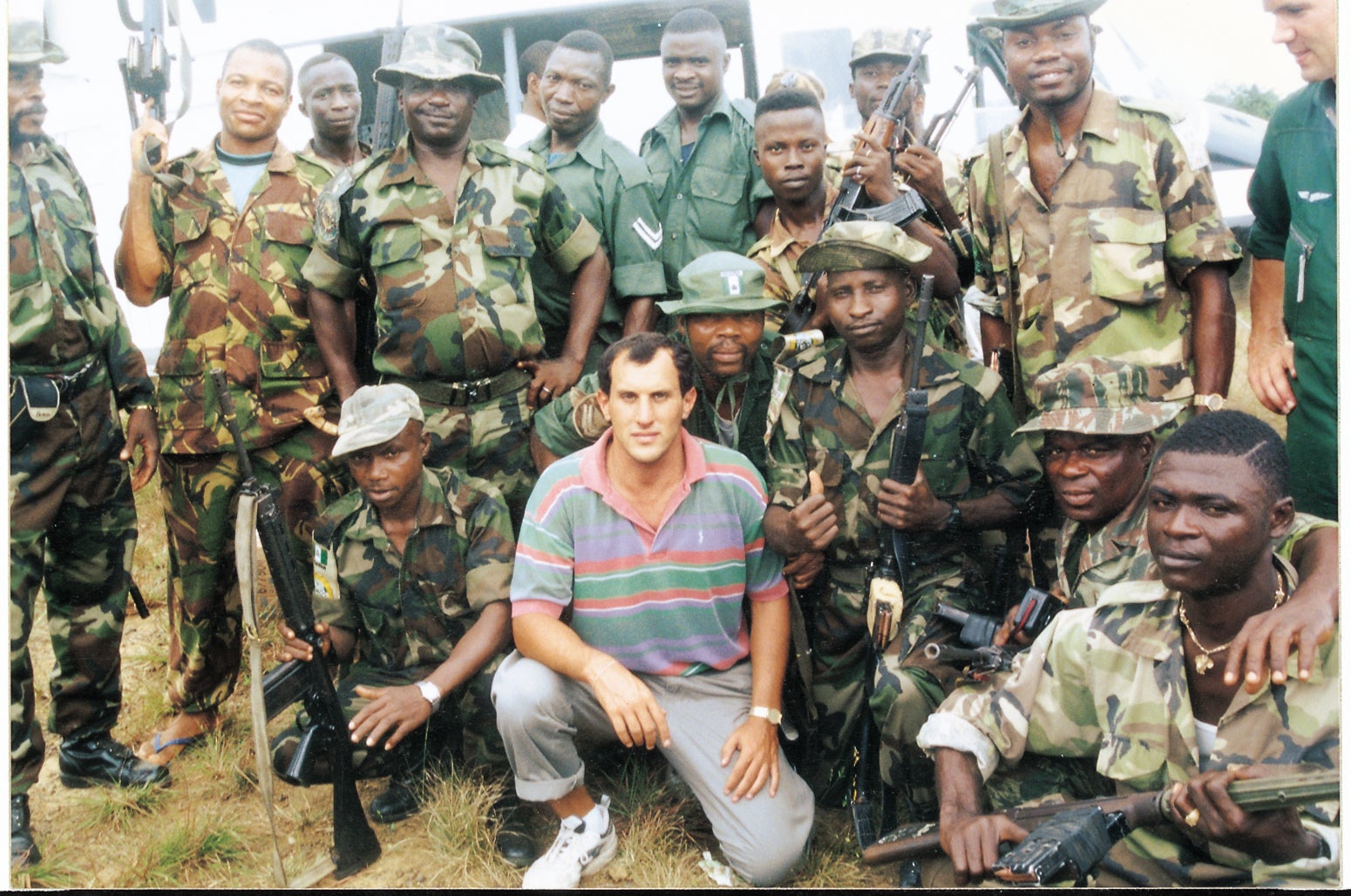When Kenneth Cain graduated from HLS in 1991, he understood how powerful law can be when it is applied fairly and obeyed. Seven years later, he made it his mission to illustrate what happens when it is not.
Earlier this year “The Rape of Dinah: Human Rights, Civil War in Liberia, and Evil Triumphant,” Cain’s gripping and horrifying account of human rights abuses in Liberia, was nominated for a National Magazine Award for reporting. Cain had no reporting experience before writing the article, which was published last year in the Human Rights Quarterly, and he competed for the award with established journalists such as the New Yorker’s Ken Auletta and Seymour Hersh. The nomination was rewarding, he said, because the attendant publicity focused attention on Liberian atrocities that had been ignored by the international community for too long.
Now employed by an Internet company in New York City, Cain still doesn’t call himself a journalist and says that it was clear early on he would never be a corporate lawyer like many of his classmates. After law school, Cain wanted to “be pragmatically useful” and worked as a civilian attached to UN peacekeeping forces in Somalia, Rwanda, Haiti, and Liberia.
Although he described the experience as intense and gratifying, Cain quit the UN in 1997, disillusioned by the organization’s inability to curtail the violence and protect civilians caught in civil wars worldwide. He began to write when he returned to the United States, detailing haunting accounts of systematic rape and murder in the Liberian civil war, and weaving analysis and a sense of outrage into an indictment of the international community’s response to a country it views as being of little strategic importance. Cain said he was driven by searing anger and frustration with the UN and the “egregious dereliction of duty” by journalists who failed to highlight the Liberian situation.
“I felt I was staring the worst, most horrible forms of injustice in the face and what could I do with it?” Cain said of his experience working with the UN in Liberia. “I tried to fight the bureaucracy of the UN but that didn’t work, so I felt the only weapon I had left was to write an honest critique.”
When he felt intimidated, Cain took inspiration from HLS Professor Alan Dershowitz, who oversaw his third-year paper dealing with conscientious objectors in South Africa. “Professor Dershowitz is an example of a guy who pulls no punches and writes frankly and honestly,” Cain said.
Still, Cain wasn’t sanguine about the possibility of getting the story published. “I was on a tight budget, living in my tiny apartment in Queens, absolutely convinced that no one would be interested in it,” he said. But in 1998, the 19,000-word chronicle moved the editor of the Human Rights Quarterly to tears and was accepted by the small academic journal immediately.
Although Cain did not win the award, he hopes his piece has served a larger cause. “I am just grateful for the selection,” Cain said, “because it means the issue has been looked at and is getting attention.”
